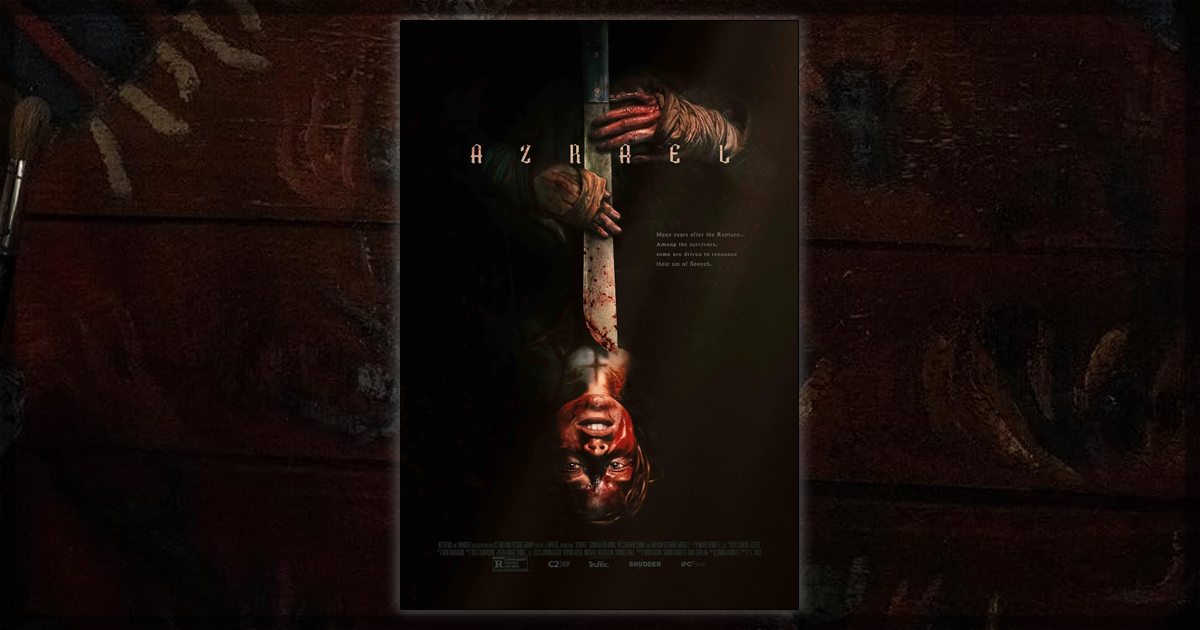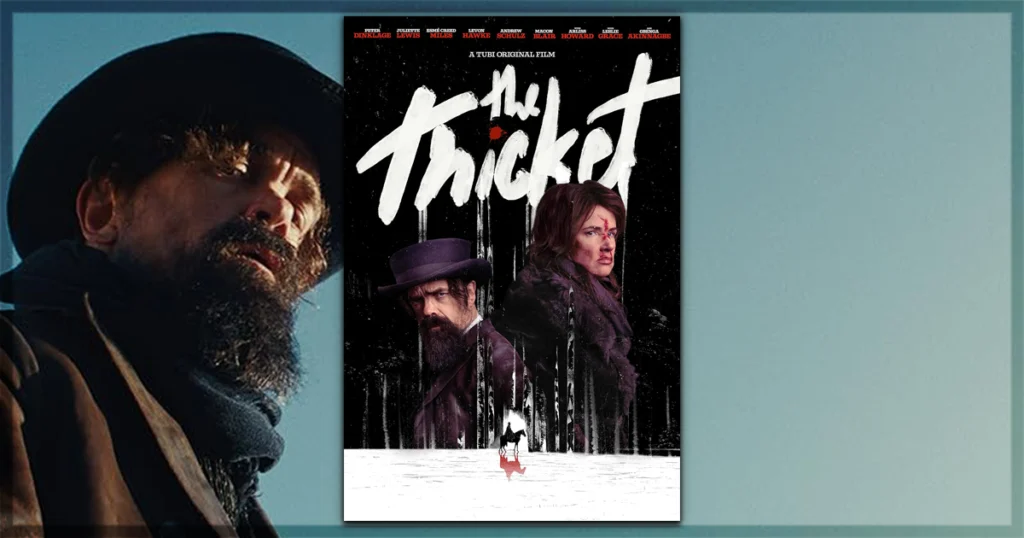The A24 studio has become exponentially popular over the last decade, particularly within the horror genre, by offering opportunities to inexperienced filmmakers to venture into the field with original stories that are less accessible to mainstream audiences. But before A24, there was IFC Films and its secondary label, IFC Midnight, which, somewhat unfairly, never seems to receive the same praise from cinephiles. Azrael is the studio’s latest work, directed by E. L. Katz (Cheap Thrills), written by Simon Barrett (Godzilla x Kong: The New Empire), and led by Samara Weaving (Ready or Not).
In a world where no one speaks, a devoted, mysterious community attempts to capture a fugitive named Azrael (Weaving). After being recaptured by merciless leaders, the young woman is destined to be sacrificed to creatures residing in the wild forest, but Azrael doesn’t give up on fighting for her freedom and survival. A horror tale generated from a raw, violent parable about sacrifice, revenge, and salvation without any dialogue, featuring heavy symbolism and narrative ambiguity, where the saying “show, don’t tell” is followed to the letter.
A quick online search reveals that Azrael means “angel of death” in Islamic traditions and even in Jewish mythology, which makes sense given the religious setting of the cult from which Weaving’s character flees. Although most of the potential religious references went over my head – especially if they stem from the mentioned religions – Katz builds a strange, eerie atmosphere around this community, which bears a burn mark on the front of their throats.
Azrael is a film of immense artistic value and technically impressive, but it also contains common entertainment elements to appeal to a broad audience. From gruesome violence to long chase and fight sequences – many with uninterrupted takes – Katz makes excellent use of Mart Taniel’s (Captain Volkonogov Escaped) cinematography. With intelligent use of darkness and lighting from fire or lanterns, Taniel helps create an immersive environment that’s only slightly less frightening due to the visually underwhelming “creatures” – they merely look like burned humans without any extraordinary physicality.
Most horror moments are executed perfectly, though some sequences could benefit from less frantic editing and more careful use of shaky cam. With a particular focus on heavy amounts of blood and general gore, Katz shows no fear in keeping the camera focused on the action, no matter how uncomfortable or disgusting it may be to watch. Taniel’s stunning shots of character silhouettes against fire-lit backgrounds also leave a lasting impression.
Returning to Barrett’s script, Azrael tries its best to be a masterclass in how not to employ forced exposition. Naturally, with no dialogue, any information about the apocalyptic world, characters, and the main plot reaches the audience solely through visual means, forcing viewers to pay attention and interpret the actors’ facial expressions, as well as the set decorations. Ambiguous movies aren’t exactly “appetizing” for general audiences, especially for those who lack the patience to think about answers to the questions the film poses.
That said, Azrael does indeed leave several narrative questions without obvious conclusions or simply open to many different interpretations, which could lead to an unpleasant sense of confusion for some viewers, as there are no clear clues for a generally accepted theory. Despite the evident themes of survival, revenge, and sacrifice, the movie lacks the thematic impact that a film of this style typically conveys. In fact, without the captivating central performance, Katz’s flick wouldn’t achieve success.
Weaving is, without a doubt, one of the most underrated actresses working in today’s film industry. From The Babysitter to Ready or Not, not to mention Guns Akimbo or Scream VI, the Australian actress always stands out due to her varied, intense expressiveness, as well as her penchant for getting soaked in fake blood baths. In Azrael, her casting is ideal, as a dialogue-free film requires a lead who can easily convey emotions – a trademark quality of Weaving. Her character is extremely capable, brave, and persistent, fighting first for her survival – with just the right amount of plot armor – and then enacting a violent, even demonic revenge plan.
Final Thoughts on Azrael
Azrael is characterized by the absence of dialogue and a dense visual narrative, challenging viewers to interpret every detail. E. L. Katz’s direction, combined with Mart Taniel’s captivating cinematography, creates a mysterious, immersive atmosphere, though it doesn’t always balance the story’s ambiguity with the need for emotional impact. Nonetheless, Samara Weaving’s magnetic performance is the true pillar that holds the movie together, making it a compelling experience with several memorable moments of horror and violence, even if some of its more abstract elements may frustrate part of the audience. An audacious, artful work with enough entertainment value to satisfy mainstream viewers.
Rating: B
Azrael will play in theaters and on Shudder on September 27, 2024.


